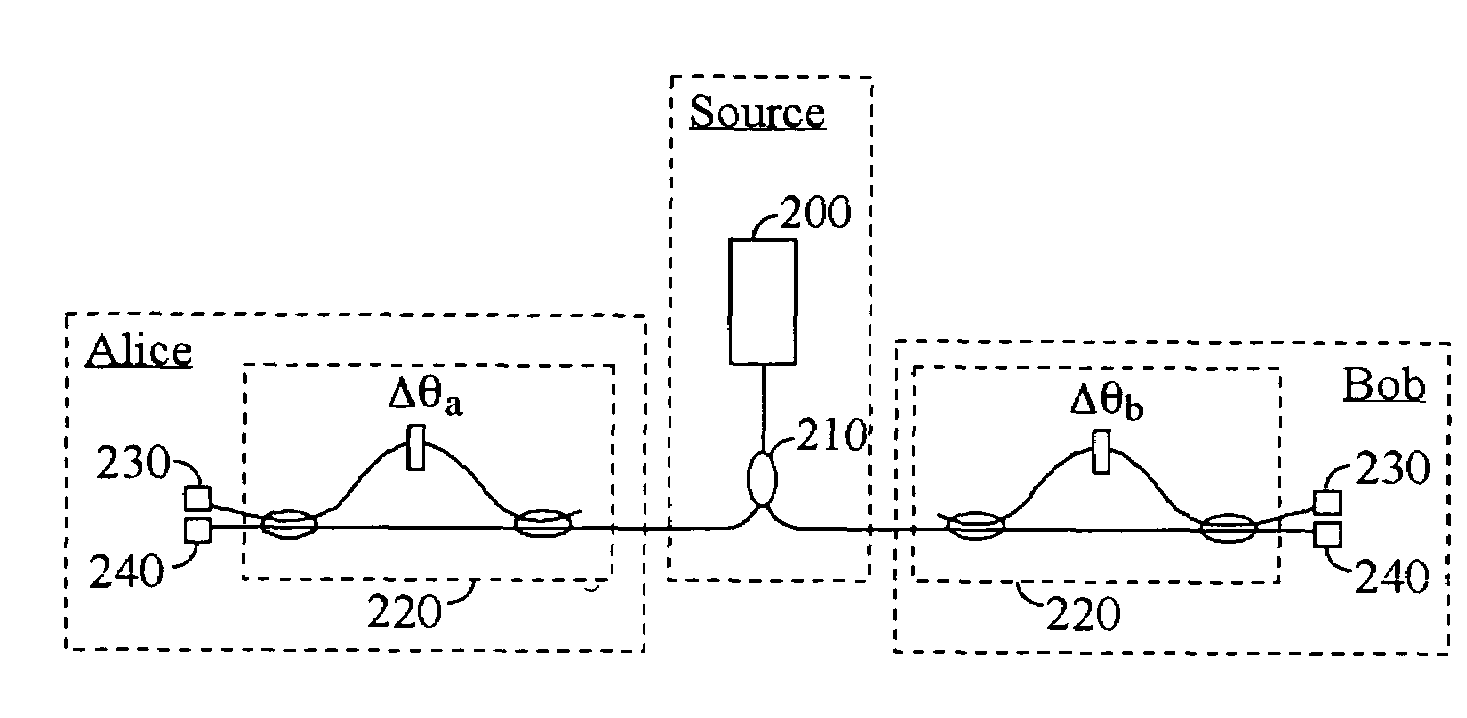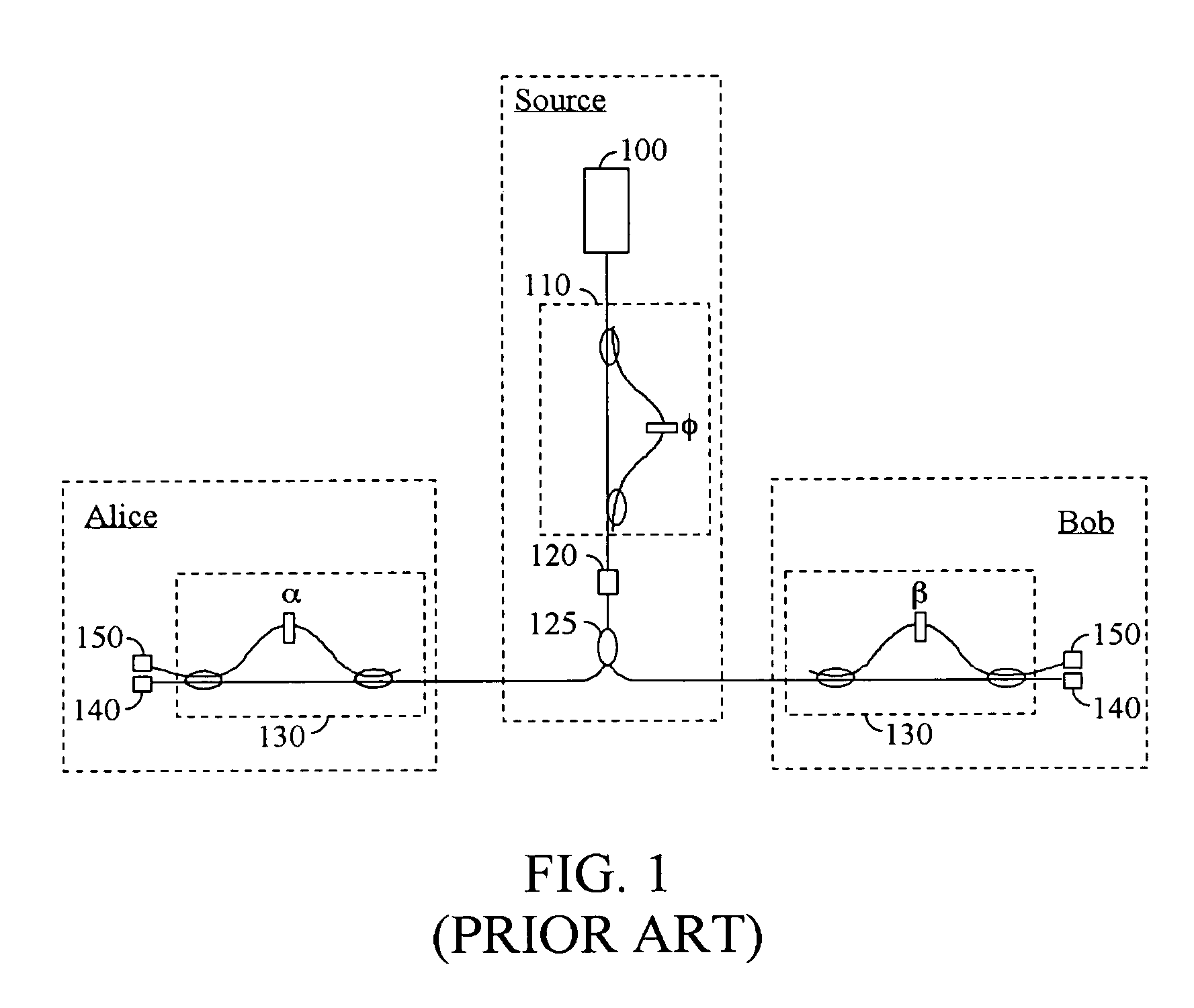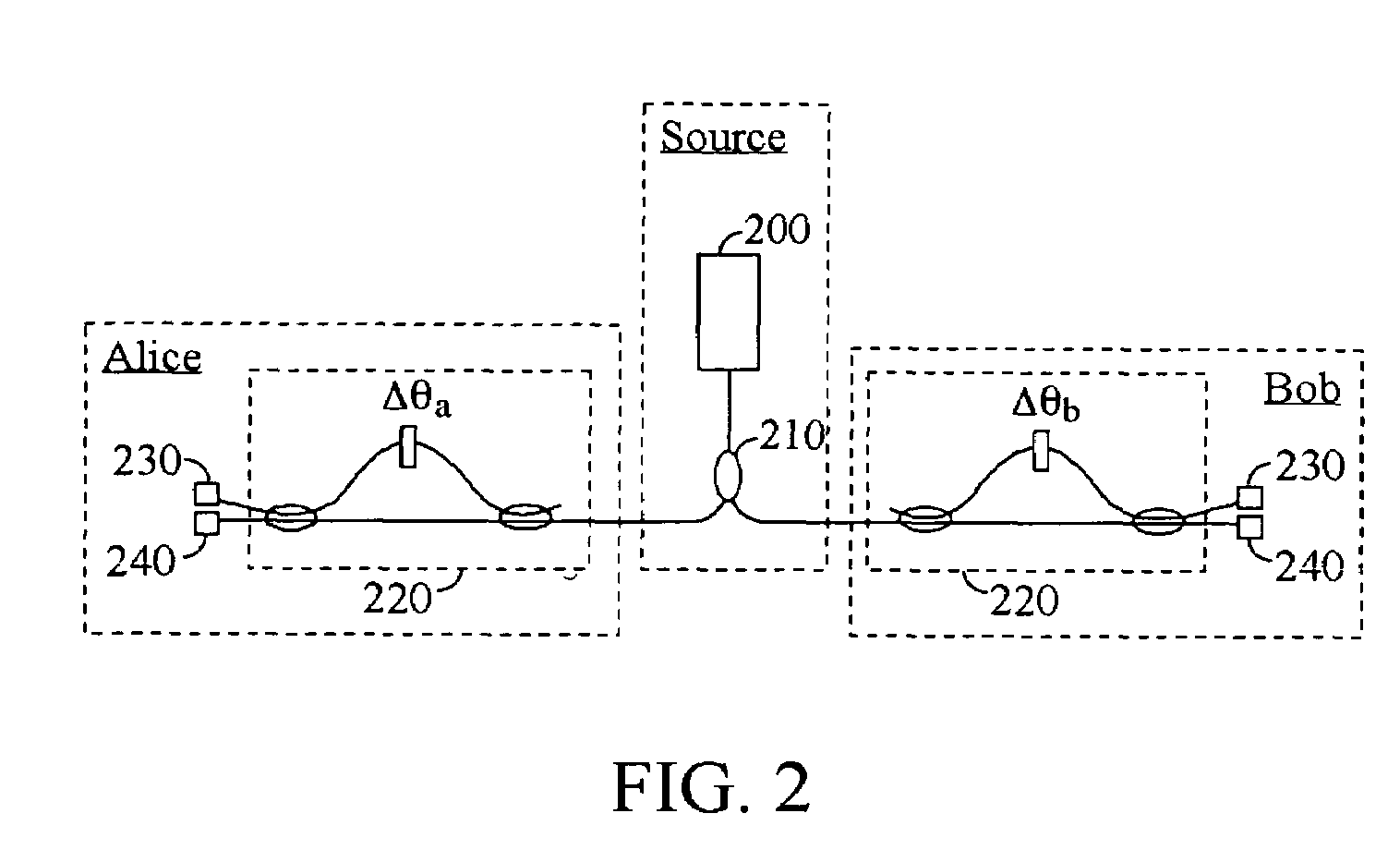Quantum key distribution system and method using regulated single-photon source
a quantum key and source interferometer technology, applied in the field of quantum key distribution systems and methods, can solve the problems of low parametric down-conversion efficiency, sensitive phase control of source interferometers, and low communication efficiency, and achieves simple practical realization and higher key creation efficiency
- Summary
- Abstract
- Description
- Claims
- Application Information
AI Technical Summary
Benefits of technology
Problems solved by technology
Method used
Image
Examples
Embodiment Construction
[0024]Embodiments of the invention provide novel energy-time entanglement QKD systems and methods. In contrast with prior energy-time entanglement QKD techniques whose photon source includes a pulsed laser, interferometer, parametric down-converter, and beam-splitter, according to embodiments of the present invention the entangled photons are generated by a regulated single-photon generator and a beam splitter. No parametric down-converter or interferometer is required at the source. The photon pairs are not generated in maximally entangled Bell states, as in the prior art. Surprisingly, the inventors have discovered that these photons can nevertheless be used to provide an QKD technique with a higher key creation efficiency than prior techniques using maximally-entangled photons generated by parametric down-conversion.
[0025]In contrast to previous approaches to energy-time entanglement QKD where all the generated photon pairs are separated and sent to different receivers, in a pref...
PUM
 Login to View More
Login to View More Abstract
Description
Claims
Application Information
 Login to View More
Login to View More - R&D
- Intellectual Property
- Life Sciences
- Materials
- Tech Scout
- Unparalleled Data Quality
- Higher Quality Content
- 60% Fewer Hallucinations
Browse by: Latest US Patents, China's latest patents, Technical Efficacy Thesaurus, Application Domain, Technology Topic, Popular Technical Reports.
© 2025 PatSnap. All rights reserved.Legal|Privacy policy|Modern Slavery Act Transparency Statement|Sitemap|About US| Contact US: help@patsnap.com



